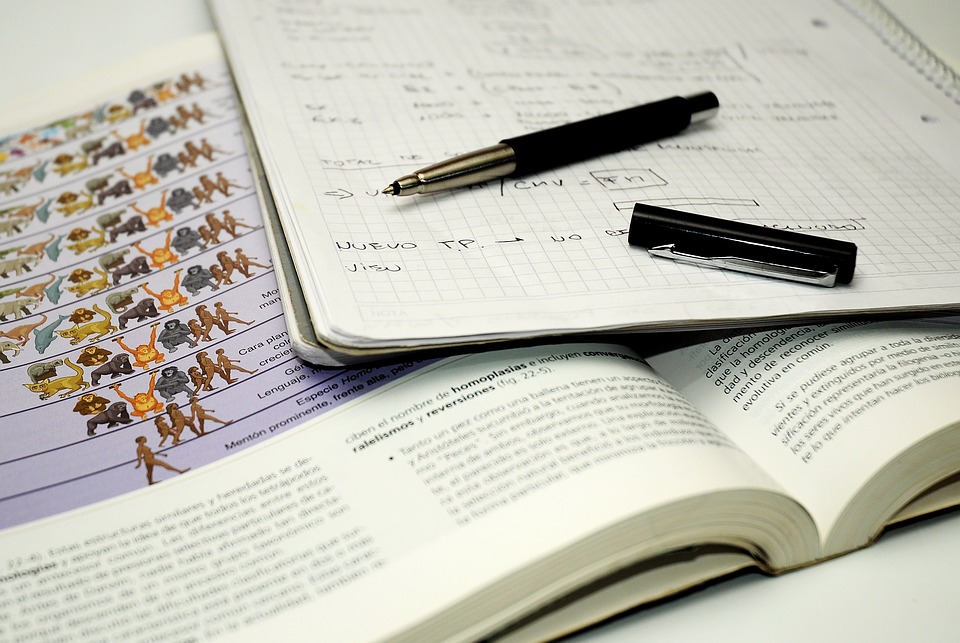Description: In this blog article, Private tutor Nathan, shares his solutions to relieving exam stress through different revision techniques.
Starting Early
For many people, the thought of exams can create fear and anxiety.
Most of the time, they can change your future.
Luckily, with the right amount of preparation and the right decisions, you can significantly help relieve exam stress and easily help yourself have a better chance of obtaining good grades.
It’s always good to start early. A month and a bit before your exam is a reasonable amount of time to start.
Creating a revision timetable around your exam dates is a good way of organising your time before you start your exam preparations.

How you decide to revise for an exam highly depends on what subject the exam is on.
However, the general process is the same, albeit some specific preparation techniques will be better used on some other subjects than others.
Different Methods
You can prepare for exams with a broad range of methods (with some methods being more effective than others depending on the subject of the exam).
A crucial starting point to doing well in an exam is having a solid grasp of the fundamental ideas you need to know.
Trying to answer an exam question without knowing anything about a basic idea referenced in your question is not very useful.
For this, flashcards are an example of an effective way to learn the fundamentals of the subject.
Another effective method is to read and understand the concepts you must know and then write down everything you remember without your notes/sources.
Afterwards, look over your notes and highlight/write down anything you’ve missed. Keep this going till you’ve managed to remember every essential bit of information you need to know.
Retaining Information
Finally, tackle some practice questions.
You may’ve now grasped the key ideas you must remember for your exam.
But it will not be good if you can’t apply them to the question.
Try as many as possible and see your strengths and weaknesses.
Once you’ve tried that go back to the ones, you had some trouble with.

Perhaps your understanding of a concept isn’t as strong as you thought, which is why you answered a question incorrectly.
Or if you’re trying to do an essay-based question, it’s always good to give your piece another read to see if you could make a section more cohesive.
For that scenario, it’s always good to get another person to read through your essay and have them determine the convincingness of the argument you’re trying to make; after that, you could make improvements accordingly.
There’s a broad range of ways you can be less successful in exam questions, but as long as you identify weaknesses, you can fix it with more practice.
Past exam questions made by an exam board [or person/lecturer] should ideally be saved for a week or so before the actual exam itself because once you’re done with all the papers.
You’ll be close enough to exam day to be more familiar with the format of the questions that the exam boards give to you.
Knowing what your exam would look like ranging from how it’s laid out to even the font used, can help you stay calm.
Anything that prevents you from panicking during the exam, and being as familiar as possible with the paper, is excellent for staying calm during it.
Timing is Everything
Unfortunately, you likely won’t be given an infinite amount of time to complete your exams, usually some hours.
So you’ll need to answer the questions quickly enough to complete everything you need to answer and have time to check over your answers within the time you have.

As you do more exam questions, naturally, your confidence should go up (even if it’s just a little), and in turn, you’ll end up answering the questions faster than how you started.
Final Note
Aside from all the preparation, which can be often stressful, taking breaks is essential during your exam preparation.
Taking breaks from studying is another crucial activity during exam preparation, as taking breaks can refresh your brain and increase your energy levels.
Thinking about work or studying for too long can waste more time and cause more exam stress.
After a particular duration, your ability to retain information or answer exam questions will be less effective than when you started.
By tutor Nathan. Contact Us

